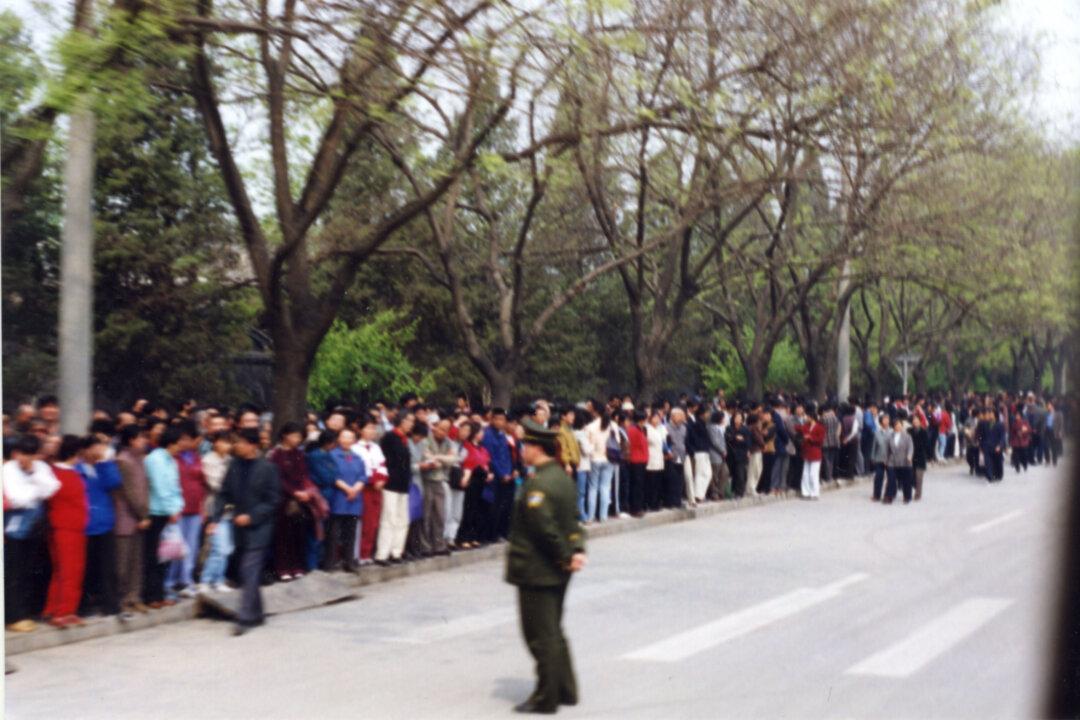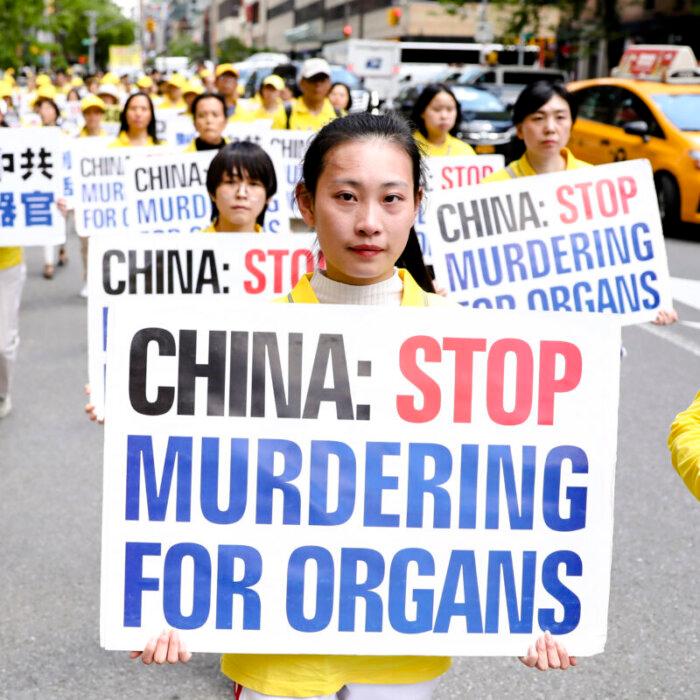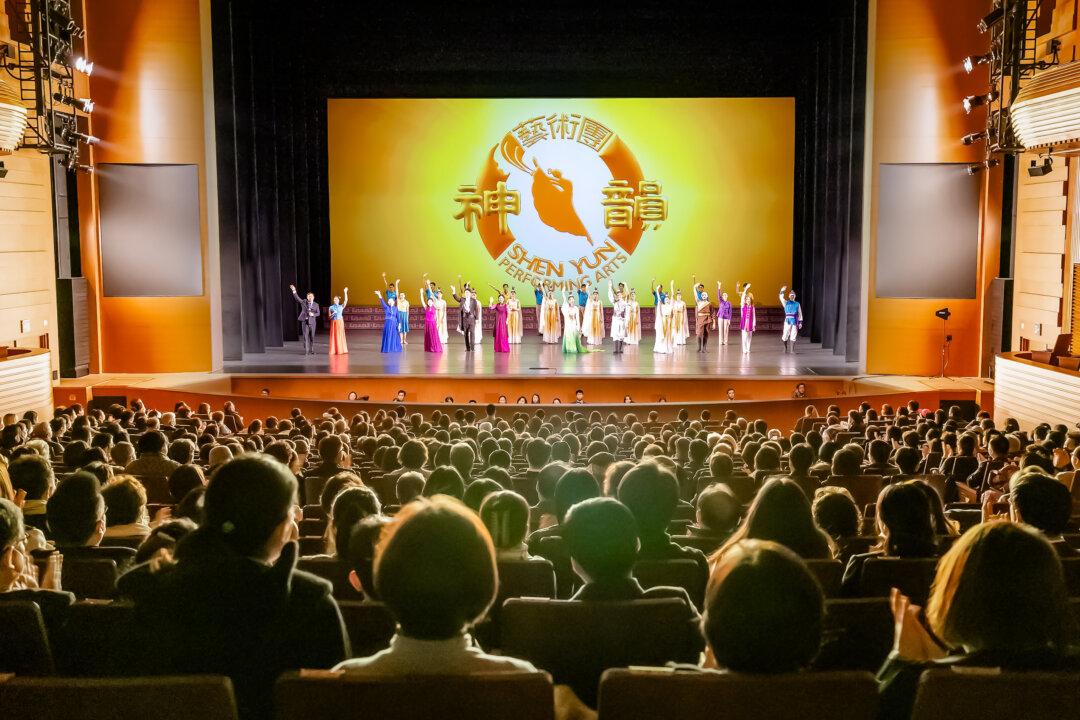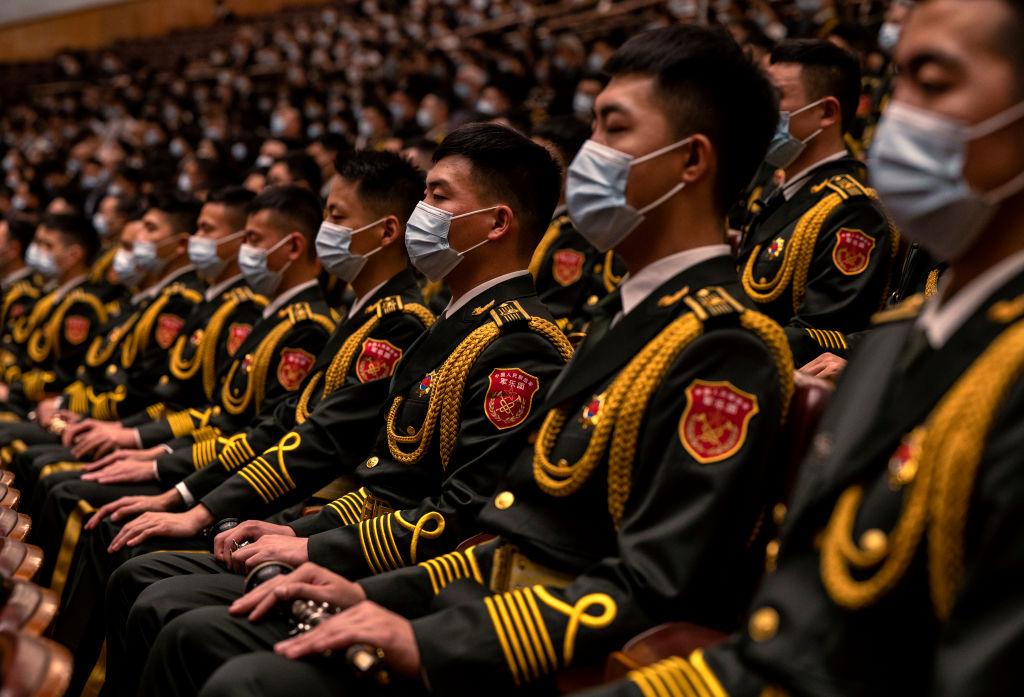Twenty-six years ago, on April 25, 1999, more than 10,000 Falun Gong practitioners peacefully gathered outside the State Council’s appeals office at the Zhongnanhai compound in Beijing to appeal for their right to practice their spiritual discipline in China. Not since students assembled in Tiananmen Square in June 1989 had so many Chinese citizens gathered in public to appeal to the authorities.
Falun Gong, also known as Falun Dafa, is a spiritual practice based on the universal principles of truthfulness, compassion, and forbearance. It was brought to the public by Mr. Li Hongzhi in May 1992 and quickly became the most popular qigong (practice involving breathing, motion, and meditation) in China. By 1998, the State Sports Commission found that more than 70 million people were practicing Falun Gong.
What Happened on April 25, 1999?
The events of April 25, 1999, had a slow buildup. Despite the improved health and morality Chinese people found in Falun Gong, CCP hardliners, such as then-CCP leader Jiang Zemin, saw it as a resurgence of traditional culture that needed to be crushed by a Cultural Revolution-like campaign.By 1996, the regime’s public security authorities started disrupting Falun Gong meditation gatherings, and state media ran articles attacking the practice. In 1997 and 1998, there were incidents of Falun Gong practitioners being unjustly treated across China.
In early April 1999, Falun Gong practitioners in Tianjin went to a state-run news agency to request corrections to inaccuracies in an article it ran on Falun Gong. However, the Tianjin Public Security Bureau used anti-riot police to beat and arrest 45 people. Local police told the practitioners to go to Beijing to resolve the issue.
Soon, there were more than 10,000 people—some standing quietly, others sitting. They were careful not to obstruct activities on the streets or footpaths, did not chant slogans or raise their voices, and were very orderly. In the context of the communist regime’s historical response to dissent and the potential consequences, this mass gathering was brave and an embodiment of kindness and forbearance.
CCP Response
Although the Chinese petition and appeals system is intended to offer hope to people who have been treated unjustly, as with all regulations in China, the CCP stands above the law.On July 20, 1999, at Jiang’s direction, the CCP launched a major arrest of Falun Gong practitioners and a brutal persecution to eradicate the practice. The persecution continues today, including the killing of practitioners to harvest their organs for the state-run organ transplant industry in military and civilian hospitals.
Why Is ‘April 25’ Important?
The Chinese communist regime does not accept the rule of law, fundamental human rights, or its obligations under international trade or treaties, and is a threat to the national security and freedoms enjoyed by all Western nations. That’s not a political issue, but rather an issue of humanity—the challenge of preserving our humanity, the goodness and kindness inherent in human beings.Shi Caidong, a doctoral candidate at the Chinese Academy of Sciences, was one of three Falun Gong practitioners invited inside the Zhongnanhai compound by Premier Zhu. Later, after the persecution began, Shi witnessed his academic colleagues being sent to forced labor camps, where many were tortured to death. He was constantly harassed and arrested, and eventually fled to the United States as a visiting university scholar.
“April 25” was the beginning of a peaceful resistance movement that is changing China from within. By embodying the principles of Falun Gong, practitioners are helping hundreds of millions of Chinese people connect with their roots and see a future without communism.
It was also the beginning of the end for the CCP, as the regime’s irrational and frenzied attacks on Falun Gong became more extreme, revealing its evil and inhumane nature to the world. The West now has a clear choice of what it will support and the future it chooses for its people.
Righteousness and justice will ultimately prevail.







